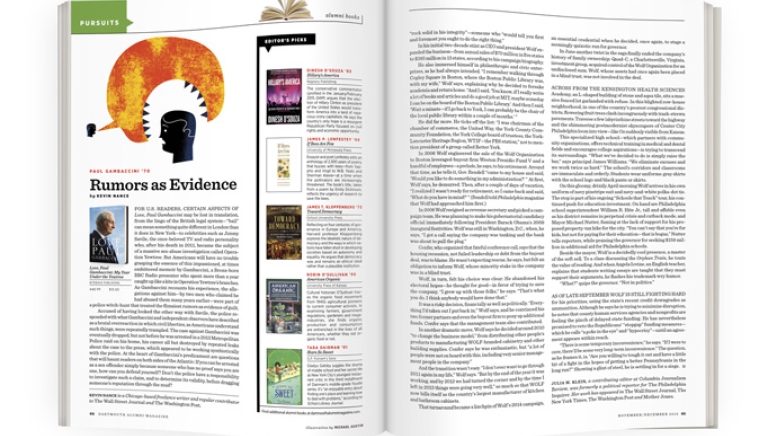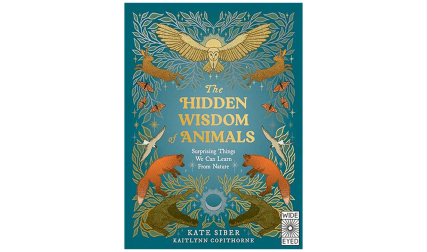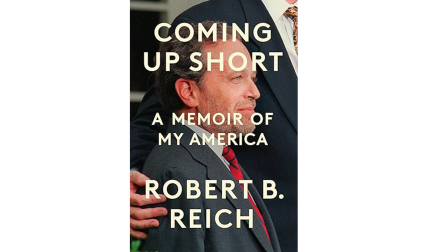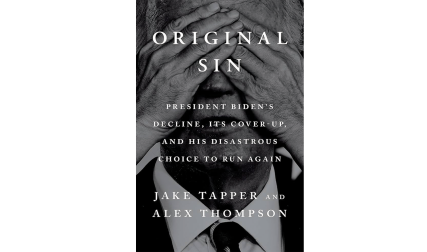Paul Gambaccini ’70
Love, Paul Gambaccini: My Year Under the Yewtree
(Biteback Publishing)
For U.S. readers, certain aspects of Love, Paul Gambaccini may be lost in translation, from the lingo of the British legal system—“bail” can mean something quite different in London than it does in New York—to celebrities such as Jimmy Savile, the once-beloved TV and radio personality who, after his death in 2011, became the subject of a massive sex-abuse investigation called Operation Yewtree. But Americans will have no trouble grasping the essence of this impassioned, at times embittered memoir by Gambaccini, a Bronx-born BBC Radio presenter who spent more than a year caught up like a kite in Operation Yewtree’s branches. As Gambaccini recounts his experience, the allegations against him—by two men who claimed he had abused them many years earlier—were part of a police witch-hunt that treated the flimsiest rumors as evidence of guilt.
Accused of having looked the other way with Savile, the police responded with what Gambaccini and independent observers have described as a brutal overreaction in which civil liberties, as Americans understand such things, were repeatedly trampled. The case against Gambaccini was eventually dropped, but not before he was arrested in a 2013 Metropolitan Police raid on his home, his career all but destroyed by repeated leaks about the case to the press, which appeared to be working symbiotically with the police. At the heart of Gambaccini’s predicament are questions that will haunt readers on both sides of the Atlantic: If you can be arrested as a sex offender simply because someone who has no proof says you are one, how can you defend yourself? Don’t the police have a responsibility to investigate such a claim, and to determine its validity, before dragging someone’s reputation through the mud? —Kevin Nance
Dinesh D’Souza ’83
Hillary’s America
Regnery Publishing
The conservative commentator (profiled in the January/February 2015 DAM) argues that the election of Hillary Clinton as president of the United States would transform America into a land of rapacious crony capitalism. He says the country’s only hope is a resurgent Republican Party focused on civil rights and economic opportunity.
James P. Lenfestey ’66
If Bees Are Few
University of Minnesota Press
Essayist and poet Lenfestey edits an anthology of 2,500 years of poetry that buzzes with bees—from Sappho and Virgil to W.B. Yeats and Sherman Alexie—at a time when the pollinators are increasingly threatened. The book’s title, taken from a poem by Emily Dickinson, reflects the urgency of research to save the bees.
James T. Kloppenberg ’73
Toward Democracy
Oxford University Press
Reflecting on four centuries of governance in Europe and America, Harvard professor Kloppenberg explores the idealistic nature of democracy and the ways in which nations have fallen short in developing societies based on autonomy and equality. He argues that democracy was and remains an ethical ideal rather than a plausible institution.
Robin O’Sullivan ’99
American Organic
University Press of Kansas
Cultural historian O’Sullivan traces the organic food movement from 1940s agricultural pioneers to current consumer activists. In examining farmers, government regulations, gardeners and mega-industries, she finds organic production and consumption are entrenched in the lives of all Americans, whether they eat organic food or not.
Tara Dairman ’01
Stars So Sweet
G.P. Putnam’s Sons
Gladys Gatsby juggles the drama of middle school and her secret life as New York City’s youngest restaurant critic in this third installment of Dairman’s middle-grade foodie series. It’s “an enjoyable entry about finding one’s place and learning how to deal with problems,” according to School Library Journal.
Additional books that were not listed in our print edition:
Howard A. Pearson ’51, DMS’52, a pediatric hematologist and oncologist who served as founding medical director of Paul Newman’s camp for children with life-threatening illnesses, recalls the dynamics of the camp that has helped children and their families for more than a quarter of a century as coauthor of Fulfilling Paul Newman’s Dream: “Raising a Little Hell” and Healing at the Hole in the Wall Gang Camp (Shefsky Enterprises). Editor’s Note: Read an excerpt at http://dartmouthalumnimagazine.com/articles/hole-wall-gang-camp.
Stephen Nichols ’58, a former professor of German and Romance languages and literatures at Johns Hopkins, argues for the study of high-resolution digital images of original manuscripts to analyze medieval literature in From Parchment to Cyberspace: Medieval Literature in the Digital Age (Peter Lang Inc.).
Historian John Clark ’62 draws on the letters and diary of a U.S. Army major charged with running the newly conceived Army 40th Portable Surgical Hospital and providing surgical support as close to the front lines as possible in Ray Banta’s War: A Combat Surgeon in World War II China (CreateSpace).
Arthur Levy, Adv’62, follows encoded sheet music created by Tchaikovsky as part of a plan to avoid punishment for being gay in 19th-century Russia and its discovery in current-day N.Y.C. in the thriller, Coda: A Tale of Tchaikovsky’s Secret Love (Koehler Books).
In his first novel, John Morse ’70, whose naval career as a surface warfare officer was followed by a career in international business, follows special operations warrior Dan Steele as he attempts to stop a major attack on the United States in Half Staff 2018: A Chilling Look into the Future (Idleknot Press).
Cliff Ennico ’75, an expert in legal and financial issues of entrepreneurial companies, explains the federal legislation governing equity crowdfunding and outlines his dos and don’ts in The Crowdfunding Handbook: Raise Money for Your Small Business or Start-up with Equity Funding Portals (AMACOM).
The author of more than a dozen art books, Carl Little ’76 explores the artists drawn to the rugged character of Mount Desert, Maine, as coauthor of Art of Acadia (Down East Books), published to coincide with the 100th anniversary of the founding of Acadia National Park.
Michael Shnayerson ’76, a contributing editor at Vanity Fair since 1986, traces the career arc of New York’s governor as he builds on his father’s political success to position himself as a possible contender for the White House in The Contender: Andrew Cuomo, a Biography (Twelve).
Amy Iorio ’84, a former Yahoo! VP in charge of women’s site Shine and Yahoo! Kids, gathers advice on raising school-age children from parenting experts at toughLOVE.com as coeditor of Tough Love: Raising Confident, Kind, Resilient Kids (Simon & Schuster).
Chris Whelan, Adv’88, a visiting biological sciences associate professor at the University of Illinois at Chicago, coedits a collection of essays from ornithologists, botanists, ecologists, conservation biologists and environmental economists as they seek to quantify the benefits that birds provide to humans in Why Birds Matter: Avian Ecological Function and Ecosystem Services (University of Chicago Press).
Katherine Sherbrooke ’89 captures the challenges of mid-life as three women travel together into a world of unconventional healing in her first novel, Fill the Sky (SixOneSeven Books).
Jon Kohl ’92, the founder and coordinator of heritage management nonprofit PUP Global Heritage Consortium, provides an innovative solution for conserving protected areas in The Future Has Other Plans: Planning Holistically to Conserve Natural and Cultural Heritage (Fulcrum Publishing).
Honor Sachs ’94, a professor of early American history at Western Carolina University, examines how conditions in Kentucky facilitated the expansion of rights for white men in ways that would become a model for citizenship in the country as a whole in Home Rule: Households, Manhood, and National Expansion on the Eighteenth-Century Kentucky Frontier (Yale University Press).
Kyle Roderick ’99 shares his experiences of struggling with and surviving leukemia in A Lonely Wonderful Walk: A Journey of Survival and Rebirth through Cancer (CreateSpace). Ten percent of the book’s sale proceeds will be donated to the Leukemia & Lymphoma Society; Roderick served as board member of the New England chapter for several years.
Hillary Miller ’02, a California State University assistant professor of theater, offers a comprehensive exploration of how New York City’s financial crisis shaped theater and performance practices during a turbulent decade in Drop Dead: Performance in Crisis, 1970s New York (Northwestern University Press).
Katharine Britton, Adv’05, follows a mother’s frantic search for her missing son as painful memories send her reeling back to her childhood and the mysterious car crash that killed her black mother and white father in her third novel, Vanishing Time (Brigham Books).




